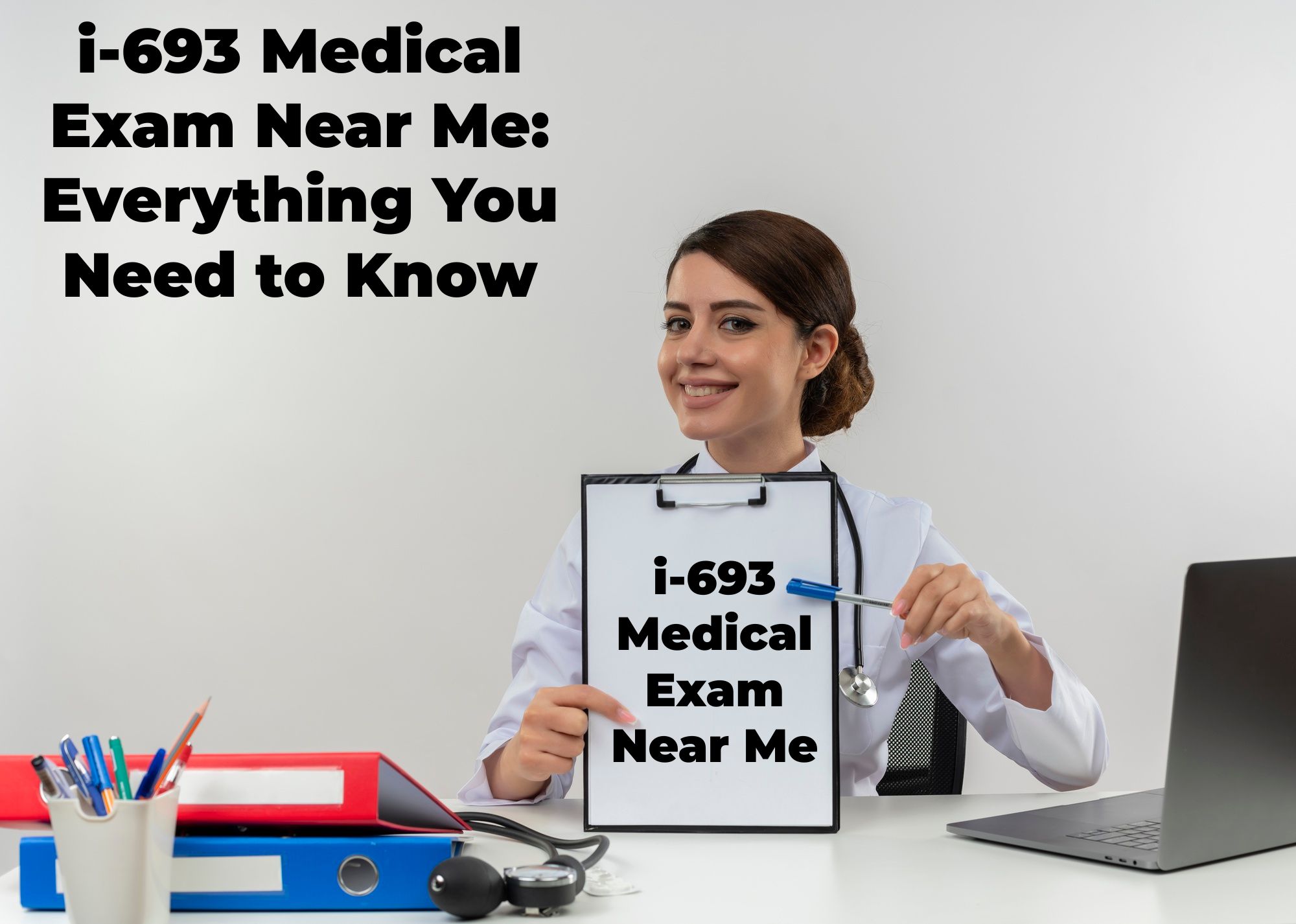School Physicals Near Me: Ensuring Optimal Health for Students
Last Updated on July 4, 2023 by Lily
As the academic year approaches, many parents and guardians are seeking convenient and affordable options for school physicals. A school physical, also known as a school medical examination or school health check-up, is an essential part of ensuring the well-being and readiness of students for the upcoming school year. In this article, we will explore the importance of school physicals, discuss their benefits, and provide information on where to find affordable options for school physicals near you.
What is a sports physical?
A sports physical, also known as a pre-participation physical examination (PPE), is a medical examination that athletes undergo before participating in organized sports activities. It is designed to evaluate the athlete’s overall health and fitness level to ensure they are physically capable of engaging in sports safely.
During a sports physical, a healthcare provider will review the athlete’s medical history, including previous injuries, chronic conditions, and medications. They will also perform a thorough physical examination, checking vital signs, assessing joint flexibility, and evaluating strength and endurance. The healthcare provider may also conduct tests such as vision and hearing assessments, as well as evaluate cardiovascular health.
The purpose of a sports physical is to identify any underlying medical conditions or physical limitations that may put the athlete at risk of injury or affect their performance. It also allows the healthcare provider to provide recommendations for injury prevention, address any health concerns, and ensure that the athlete is ready to participate in sports activities safely. Sports physicals are typically required by schools, sports teams, and sports organizations to prioritize the well-being of athletes.
Why are School Physicals Important?
School physicals play a crucial role in promoting the overall health and well-being of students. These examinations help identify any underlying medical conditions or concerns that may affect a student’s ability to learn, participate in physical activities, or attend school regularly. By conducting school physicals, healthcare providers can detect and address potential health issues early on, allowing for timely intervention and treatment.
When and where should I go for a sports physical?
When it comes to getting a sports physical, it is essential to plan ahead and schedule the examination at the right time and in the appropriate location. Here are some considerations for when and where to go for a sports physical:
Timing: Sports physicals are typically required annually before participating in a new sports season. It is advisable to schedule the examination several weeks before the start of the season to allow for any necessary follow-up or treatment if an issue is identified.
Primary Care Physician: One option is to visit your primary care physician for a sports physical. They are familiar with your medical history and can provide comprehensive care. Contact your primary care provider’s office to inquire about scheduling a sports physical appointment.
Urgent Care Centers: Urgent care centers are another option for sports physicals. They often have extended hours and offer walk-in appointments, making them convenient for busy schedules. However, it is recommended to call ahead and confirm if they provide sports physicals and if an appointment is needed.
School-Based Health Centers: Some schools have on-site health centers that offer sports physicals. Check with your school to see if they provide this service and how to schedule an appointment.
Specialized Clinics: In some cases, specialized clinics or sports medicine clinics may offer sports physicals. These facilities are specifically designed to address the unique needs of athletes and can provide comprehensive evaluations.
Benefits of School Physicals:
Identifying Health Concerns: School physicals involve a comprehensive assessment of a student’s physical health, including height, weight, blood pressure, vision, hearing, and overall fitness. These examinations can help identify potential health concerns such as vision or hearing problems, abnormal growth patterns, high blood pressure, or signs of developmental delays.
Immunization Verification: School physicals also provide an opportunity to verify a student’s immunization records. Ensuring that students are up to date with their vaccinations is crucial in preventing the spread of contagious diseases within the school community.
Promoting Healthy Habits: School physicals offer an opportunity for healthcare providers to educate students and their families about healthy lifestyle choices. Topics such as nutrition, exercise, sleep habits, and stress management can be discussed during the examination, promoting long-term well-being.
Where to Find Affordable School Physicals Near You:
Primary Care Physicians: One of the most common options for school physicals is scheduling an appointment with a primary care physician. Many family doctors and pediatricians offer comprehensive school physicals as part of their services. It is advisable to call ahead and inquire about the availability of school physical appointments.
Urgent Care Centers: Urgent care centers are another convenient option for school physicals. These walk-in medical facilities typically have extended hours and offer a range of services, including school physicals. Check with the urgent care centers in your area to inquire about their pricing and availability.
School-Based Health Centers: Some schools have on-site health centers or partnerships with nearby clinics that provide school physicals. These centers are often equipped to handle routine medical examinations and offer accessible and affordable options for students.
Community Health Clinics: Community health clinics, often operated by nonprofit organizations, provide comprehensive healthcare services to underserved populations. These clinics may offer reduced-cost or sliding-scale fees for school physicals. Research local community health clinics in your area to explore affordable options.
Public Health Departments: Local public health departments sometimes offer free or low-cost school physicals for students. Check with your local health department or visit their website to inquire about any upcoming school physical events or clinics.
FAQs
What do they do at a sports physical?
During a sports physical, a healthcare provider will typically:
Review the athlete’s medical history, including previous injuries, chronic conditions, and medications.
Perform a thorough physical examination, including checking vital signs, assessing joint flexibility, and evaluating strength and endurance.
Conduct tests such as vision and hearing assessments.
Evaluate cardiovascular health through listening to the heart and lungs.
Address any concerns or questions the athlete or their parents may have regarding sports participation.
Is a sports physical covered by my insurance?
The coverage of sports physicals by insurance varies depending on the specific insurance plan. In many cases, insurance plans cover the cost of a sports physical, especially if it is deemed a preventive service. However, it is recommended to contact your insurance provider or review your plan’s coverage details to determine if a sports physical is covered and if any out-of-pocket costs may apply.
Who should get a sports physical?
Sports physicals are typically required for individuals who plan to participate in organized sports activities, such as school sports teams or community leagues. This requirement helps ensure the safety and well-being of athletes by identifying any underlying health conditions or physical limitations that may affect their ability to participate safely.
What if you don’t pass a sports physical?
If an individual does not pass a sports physical, it means that a health concern or condition has been identified that may pose a risk or require further evaluation. Depending on the specific issue, the healthcare provider may provide recommendations for further medical evaluation, treatment, or restrictions on sports participation. It is essential to follow the guidance of the healthcare provider to prioritize the individual’s safety and well-being.
What happens at a physical for a woman?
A physical exam for a woman, often referred to as a well-woman exam, includes various components to assess overall health and reproductive wellness. This may include:
Reviewing medical history, including menstrual history, contraceptive use, and any concerns or symptoms.
Measuring vital signs such as blood pressure, heart rate, and weight.
Performing a breast examination to check for abnormalities or lumps.
Conducting a pelvic examination to assess the health of the reproductive organs, including the uterus, cervix, and ovaries.
Discussing and addressing any concerns or questions related to sexual health, contraception, or reproductive wellness.
Conclusion:
School physicals are essential for ensuring the well-being and readiness of students as they embark on a new academic year. By identifying and addressing potential health concerns, school physicals contribute to a healthy and thriving school community. To find affordable options for school physicals near you, consider reaching out to primary care physicians, urgent care centers, school-based health centers, community health clinics, and local public health departments. Prioritizing regular school physicals can help students maintain optimal health, allowing them to fully engage in their educational journey.



